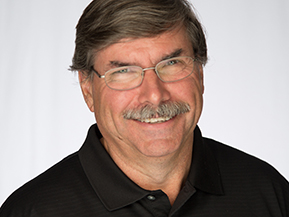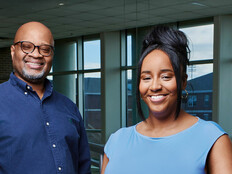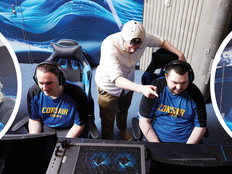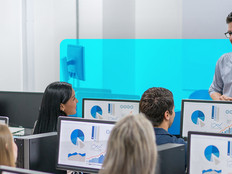Q&A: Lake Area Technical Institute’s Dennis Heller Says Digital Divide Has Shrunk
Community colleges are proving to be a helpful puzzle piece in bridging the digital divide.
EdTech spoke with Dennis Heller, the IT director of the Lake Area Technical Institute, which won the 2017 Aspen Prize for Community College Excellence and boasts one of the nation’s highest post-graduation employment rates.
EDTECH: What big changes are you seeing in IT at the community college level?
HELLER: I think the students drive IT more than IT drives the students. We used to get the computers, implement the technology and get it in front of students. Now the students and the curriculum are driving more of the IT needs and the challenges. Years ago, we started a laptop program, where students purchased or leased laptops from Lake Area Tech. Presently, we are moving into a more defined virtual desktop infrastructure.

Dennis Heller, IT director of Lake Area Technical Institute
EDTECH: How does the laptop program work?
HELLER: The laptop lease-to-own program is optional. Students can lease a laptop from Lake Area Tech and make payments on it each semester until they pay it off (typically four semesters). Students also have the option to bring their own. For some of the majors, a basic laptop will do, but we do have departments that require a specific laptop that can manage some of the software required for learning. We need to make sure these laptops have the specific graphic cards or memory size they need.
EDTECH: How has IT contributed to your overall success?
HELLER: From the IT standpoint, we believe that, along with every department at Lake Area Tech, we too contributed to winning the award! The basic fact that up-to-date technology is available on campus — from the phone systems to the classrooms — makes us better at what we all do for the students.
EDTECH: Does the digital divide still present challenges for your students?
HELLER: I don’t think the digital divide is as large as it used to be because everybody has a smartphone and access to tablets. Pretty much everybody who comes on campus will have a laptop or some kind of computing device. We’ve been watching the numbers over the years, and that digital divide just isn’t there like in the past. A lot of devices are coming on campus. We have more than 2,000 students on campus, but we have between 4,000 and 5,000 wireless connections. Everybody has two to three devices with them all the time.
EDTECH: How does that change student expectations of IT?
HELLER: They’re more in the driver’s seat than they used to be. Students are knowledgeable about technology and they’re requesting the latest and greatest: robotic welders, healthcare simulators, virtual reality, precision agriculture. It’s exciting times!
EDTECH: What are the biggest IT challenges facing community colleges?
HELLER: A major challenge is trying to stay in front of the technology that the students are looking for and what brings them onto campus. We’ve been pretty fortunate. We’re part of a statewide network system, and we have pretty hefty bandwidth. Students don’t see slowness on the network. We’re using anywhere from 25 to 50 percent of our total bandwidth when we peak out. Our department is always faced with the challenge of making sure students, faculty and staff have the computer equipment they need — the current printers and software, access online through a portal or virtual desktop infrastructure — so they have total access throughout a 24-hour period. That’s what we’re running into right now.
EDTECH: How do you stay on top of increasing Wi-Fi demands?
HELLER: We are constantly monitoring our wireless demand, and we implemented a four-year rotation on our wireless equipment. We have a mix where we replace the access points and the switches in a building, and then move to another building the next year, so we just keep rotating through the buildings. By the end of the fourth year, we’ll have everything up to the one spec and then we’ll start with the first building again to refresh.
EDTECH: What are your biggest challenges around cybersecurity?
HELLER: Constantly educating and getting the students and staff to understand what to do and what not to do. People get complacent and the filters don’t catch everything. For example, they see an email that looks legitimate, click on it and open it up. So the constant training and awareness are the areas where we have the biggest issues.









